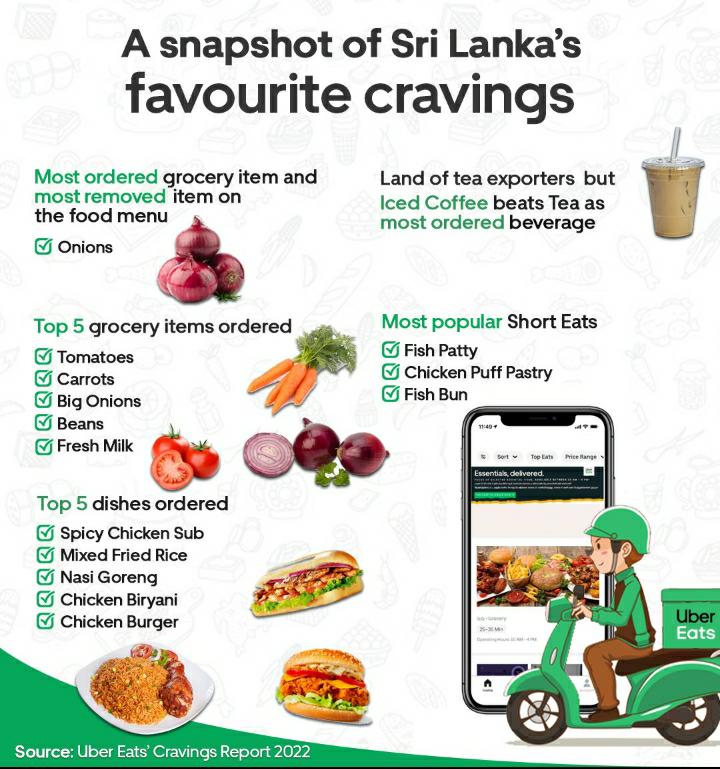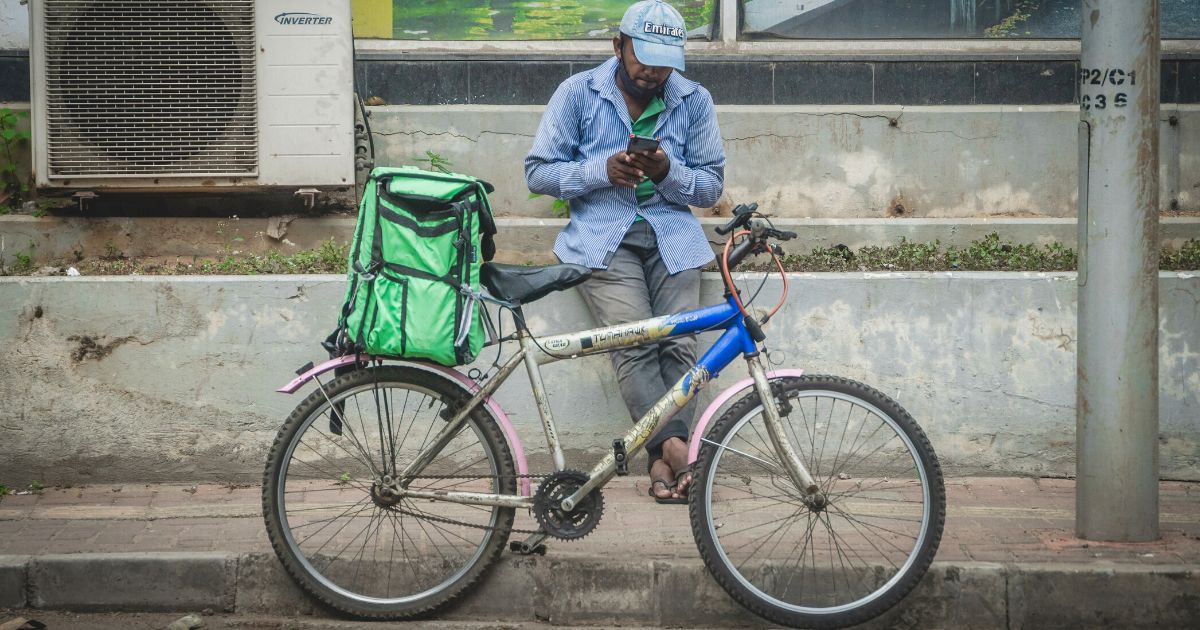2022 looked to be an interesting year for food delivery as Uber Eats reported over LKR 82 million in tips for its delivery partners over the year. The figure was outlined in the company’s latest Uber cravings report for Sri Lanka which offered a glimpse of what consumer behavior was like in 2022.
2022 Uber Eats cravings
While 82 million is notable in size, a closer look at the number paints a slightly different picture. By December 2022, Uber Eats Sri Lanka accounted for more than 15,000 delivery partners. This translates to roughly LKR 5,467 per driver for the whole year in tips. That’s about LKR 455.56 per month for each driver in tips on average. However, it should be noted that in reality, cash tips hardly get captured on the app. So chances are the actual figure could likely be higher.
Uber Eats also accounts for over 10,000 registered merchant partners spread across its five cities of operations, Colombo, Kandy, Kurunegala, Negombo, and Gampaha. According to the company, out of these merchants, approximately three out of five most ordered dishes were rice-based meals amounting to millions.

Interestingly, among the consumers, one customer reportedly ordered 294 times from the same restaurant in 2022 (roughly 6 orders per week). Another recorded an LKR 62,600 for a single order, making it the biggest order on the app during 2022.
Challenging economy
However, it should be noted that business operations haven’t been the easiest in 2022, particularly for Uber Eats’ sector. The country’s economic crisis, topped with the fuel shortage and the consequent electricity supply issues impacted many industries across the island during the year. In fact, back in May 2022, Uber Eats opted for bicycles to facilitate food and grocery deliveries. By September, out of the total 24 million Uber Eats deliveries, over 100,000 deliveries were made via bicycles, as per Uber Eats Sri Lanka General Manager, Bhavna Dadlani Jayawardene. How that number will change, time will tell.
But Sri Lanka was already facing its fair set of challenges since the pandemic hit the country in early 2020. Over the past few years, more people have turned to food delivery services like Uber Eats. This change was reflected in UK-based policy research firm Public First’s “The Impact of Uber in Sri Lanka 2021” report. Accordingly, its driver-partners (not Uber Eats riders) earned an estimated additional LKR 775 million in a year in higher income via Uber. In other words, an average of 27% more than the next-best alternative (PickMe).
The same report also indicates that Uber created an estimated LKR 81 billion in economic value for the Sri Lankan economy in 2021. This is inclusive of the “impact of earnings of driver-, delivery- and restaurant-partners.” Further, the report mentions Uber had created an estimated LKR 52 billion in consumer surplus in 2021, with Uber Eats accounting for LKR 25 billion.
Security problems and customer woes
But economic challenges weren’t the only thing on Uber’s list. Back in September 2022, Uber’s global operation was hacked. Reportedly, over 1.1 petabytes worth of data could have been leaked following the hack. At the time, security experts pointed out that the incident is a “total compromise” of the service and that “they pretty much have full access to Uber.” The company did respond to the hack, offering an explanation of the incident and indicating that it’s investigating the matter. Though, the last update was issued on 19 September stating that the investigation is still ongoing. Despite the severity of the hack, Uber Sri Lanka is yet to comment on the potential impact of the September 2022 incident, if at all.
Then there’s the issue around driver/order cancellations with Uber in Sri Lanka. Of course, it’s nothing new and it’s not one unique to the service. But the recurring problem continues to be a thorn in Uber’s side and a seemingly unavoidable hindrance to users. Perhaps what worsens the situation is the occasionally delayed unhelpful responses. Even when not, customer service responses from the Indian team don’t do it any favors either.
Looking ahead
Regardless, the company’s presence and its operational impact will likely continue to be a crucial element of Sri Lanka’s gig economy. Uber has come a long way since its Sri Lankan entrance in 2015 and Uber Eats, three years later. The service proved to be among the many important moving parts of the island’s economy, particularly with the impact of the pandemic followed by the economic crisis. 2021 sentiments showcased a 61% satisfaction rate with the service from its driver and delivery partners. Meanwhile, 69% of Uber Eats users agree that food delivery apps have helped improve the quality of life amid the pandemic.
It’s unclear how the past year may have impacted these general sentiments. In any case, it will be interesting to see what 2023 holds for Uber.
[Edit 15/01/2023]: Updated the delivery partner tip section to reflect cash on delivery considerations







GIPHY App Key not set. Please check settings